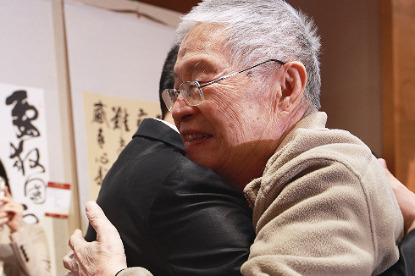Chinese institutes launch powerful AI model to find disease-causing gene mutations

BEIJING -- AI foundation models can advance genetic research to uncover more disease-causing mutations in clinical settings.
In an advancement for genomic research, Chinese biotech firm BGI-Research and Zhejiang Lab specializing in AI technology launched Thursday an AI model "Genos," hailed as the world's first deployable genomic foundation model with 10 billion parameters, Science and Technology Daily reported.
The model is designed to analyze sequences of up to one million base pairs and achieves single-base resolution, promising to accelerate the functional understanding of the human genome.
Although a total of 3 billion base pairs in human genome have been sequenced, interpreting specific functions of those individual bases remains a monumental challenge. Most existing AI models are trained on just one or two reference genomes, failing to capture the vast diversity of human genetics.
Genos addresses this fundamental limitation head-on, being trained on a comprehensive set of 636 "telomere-to-telomere" high-quality human genomes that incorporate genomes from diverse global populations.
Technically, the model's massive scale is managed efficiently through a Mixture-of-Experts (MoE) architecture. This innovative design allows it to utilize only the most relevant "expert" networks for a given task, thus reducing computational costs and resource consumption.
In a test for interpreting the disease-causing mutations, Genos achieved an accuracy of 92 percent. When combined with a scientific foundation model, its accuracy soared to 98.3 percent.
Genos has been open-sourced on platforms like Hugging Face, available in two versions -- 1.2 billion and 10 billion parameters.
- Chinese institutes launch powerful AI model to find disease-causing gene mutations
- CPC Central Committee to hold news conference on plenary session
- Conference calls for tech innovations to fight weed menace
- CPC plenum concludes, adopting recommendations for China's 15th Five-Year Plan
- China plans to revise Cybersecurity Law to address challenges imposed by AI
- Experts call for gender equality in digital future at UNESCO forum





































